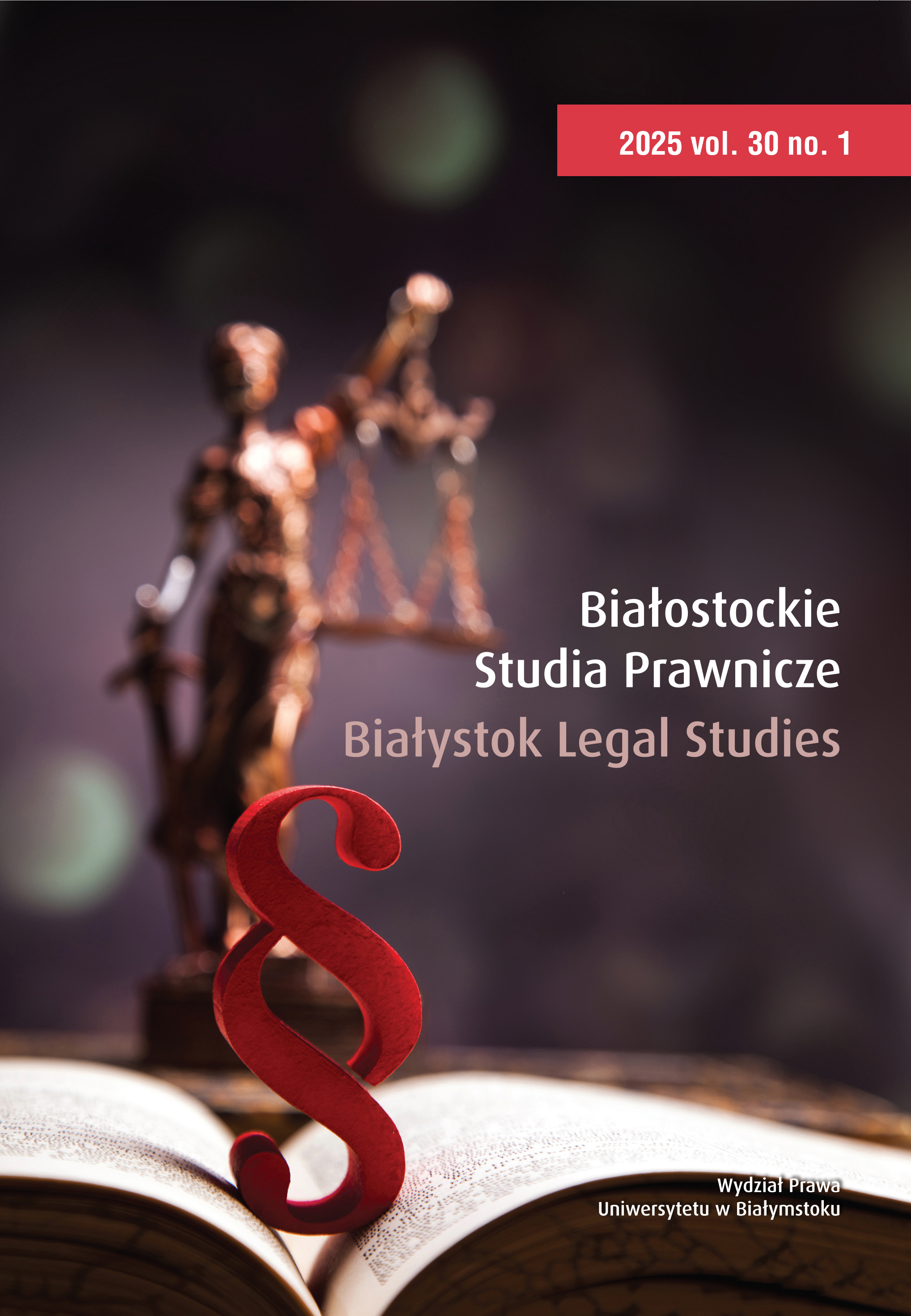The Legal Position of Children of Same-Sex Parents in Poland and the Netherlands: A Discussion of Opposing Approaches
Abstrakt
This paper presents two different approaches to the regulation of legal parent–child relationships in the case of same-sex couples. The Polish legal framework can be qualified as traditional and grounded in hetero and cisnormativity. The Dutch family code is grounded in the same heteronormative approach but has evolved over the past decades into a more liberal and inclusive framework; however, its heteronormative foundation is still visible. Both case studies reflect the unruly character of everyday life, in which the legal regulation of family relations is continuously put to the test, resulting in exclusions and in particular vulnerable positions for children born into other than opposite-sex relationships. In Poland such situations do not just occur when same-sex couples decide to raise a family despite the absence of a protective legal framework; transgender parents who change their legal gender marker and Polish immigrants with foreign documents also present complex questions issues to the authorities. In the Netherlands the heteronormative foundation of family law is reflected in, for example, the fact that if a child was conceived with the semen of a known donor, only male married or registered partners of the woman who gives birth will automatically become the child’s legal parent. The aim of this paper, which presents two case studies, is to provide an incentive for rethinking the current legal systems, so as to better protect all children, regardless of their parents’ sex or gender, and thus strengthen respect for and implementation of the rights of children born from same-sex relationships.Bibliografia
Balwicka-Szczyrba, M., Sylwestrzak, A., & Mielewczyk, D.D. (2023). Transcription of foreign civil status documents of children of same-sex parents in Polish law. Papers di Diritto Europeo, Special Issue, 1–14.
Boratyńska, M. (2015). Ustawa o uzgodnieniu płci a przygody transseksualistów w próżni legislacyjnej. Prawo i Medycyna, 3, 53–83.
European Parliament. (2023, 14 December). Legislative Resolution on the Proposal for a Council Regulation on Jurisdiction, Applicable Law, Recognition of Decisions and Acceptance of Authentic Instruments in Matters of Parenthood and on the
Creation of a European Certificate of Parenthood (COM(2022)0695, C9–0002/2023, 2022/0402(CNS)).
Gajda, J. (2013). ‘Adopcja’ przez pary homoseksualne. Aspekty prawne. In M. Andrzejewski (Ed.), Związki partnerskie. Debata na temat projektowanych zmian prawnych (pp. 117–126). TNOiK – Dom Organizatora.
Government of the Netherlands. (1997). Wet van 17 december 1997 tot aanpassing van wetgeving aan de invoering van het geregistreerd partnerschap in Boek 1 van het Burgerlijk Wetboek (Aanpassingswet geregistreerd partnerschap). Staatsblad, 660.
Government of the Netherlands. (2001b). Wet van 4 oktober 2001 tot wijziging van Boek 1 van het Burgerlijk Wetboek in verband met het gezamelijk gezag van rechtswege bij geboorte tijdens een geregistreerd partnerschap. Staatsblad, 468.
Government of the Netherlands. (2001a). Wijziging van Boek 1 van het Burgerlijk Wetboek in verband met de openstelling van het huwelijk voor personen van hetzelfde geslacht (Wet openstelling huwelijk), 1 April 2001. Staatsblad, 9.
Government of the Netherlands. (2002). Wet van 25 april 2002, houdende regels voor de bewaring, het beheer en de verstrekking van gegevens van donoren bij kunstmatige donorbevruchting (Wet donorgegevens kunstmatige bevruchting). Staatsblad, 240.
Government of the Netherlands. (2013). Wet van 25 November 2013 tot wijziging van Boek 1 Burgerlijk Wetboek in verband met het juridisch ouderschap van de vrouwelijke partner van de moeder anders dan door adoptie. Staatsblad, 480.Government of the Netherlands. (2022). Besluit van 28 november 2022 tot wijziging van het Besluit burgerlijke stand 1994 in verband met de aanduiding van het ouderschap van de persoon uit wie het kind is geboren in de akten van de burgerlijke stand en de latere vermeldingen daarbij. Staatsblad, 484.
Grabinski, A., & Haberko, J. (2011). Dobro dziecka a stosowanie procedur wspomaganej medycznie prokreacji w prawie francuskim i prawie polskim. Studia Prawnicze, 1, 33–60.
Harding, M. (2022). LGBT+ family rights in Ireland. In R. Fretwell Wilson & J. Carbone (Eds.), International survey of family law (pp. 205–226). Intersentia.
Judgment of the CJEU of 14 December 2021 on the case of V.М.А. v Stolichna obshtina, rayon ‘Pancharevo’, C-490/20.
Judgment of the CJEU of 24 June 2022 on the case of Rzecznik Praw Obywatelskich C-2/21.
Judgment of the Constitutional Tribunal of 1 July 2021on the case regarding admissibility of marriage for persons of the same sex, SK 15/17. https://trybunal.gov.pl/postepowanie-i-orzeczenia/postanowienia/art/11653
Judgment of the District Court of Amsterdam of 1 June 2016 on the case regarding the recognition of a foreign adoption, ECLI:NL:RBAMS:2016:3272.
Judgment of the District Court of Den Haag of 12 February 2018 on the case regarding the judicial determination of parenthood, ECLI:NL:RBDHA:2018:1731.
Judgment of the District Court of Den Haag of 18 October 2022 on the case regarding surrogacy, ECLI:NL:RBDHA:2022:10741.
Judgment of the District Court of Noord-Holland of 26 February 2014 on the case regarding the determination of parenthood and adoption, ECLI:NL:RBNHO:2014:1900.
Judgment of the District Court of Noord-Holland of 12 July 2017 on the case regarding substitute approval for recognition, ECLI:NL:RBNHO:2017:5743.
Judgment of the District Court of Noord-Holland of 25 March 2022 on the case regarding single-parent adoption, ECLI:NL:RBNHO:2022:2599.
Judgment of the District Court of Overijssel of 3 February 2022 on the case regarding substitute approval for recognition by female partner, ECLI:NL:NL:RBOVE:2022:357.
Judgment of the District Court of Zwolle-Lelystad of 22 June 2010 on the case regarding the adoption of adult children, ECLI:NL:RBZLY:2010:BM8664.
Judgment of the European Court of Human Rights of 4 April 2023 on the case of O. H. and G. H. v. Germany, nos. 53568/18 and 54941/18.
Judgment of the European Court of Human Rights of 12 December 2023 on the case of Przybyszewska and Others v. Poland, nos. 11454/17 and 9 others.
Judgment of the High Court of the Netherlands of 19 October 1990 on the case regarding marriage between two people of the same sex, ECLI:NL:HR:1990:AD1260.
Judgment of the High Court of the Netherlands of 21 April 2006 on the case regarding step-parent adoption and family life of the biological father, ECLI:NL:HR:2006:AU9726.
Judgment of the High Court of the Netherlands of 2 February 2024 on the case on recognition by comother, ECLI:NL:HR:2024:148.
Judgment of the Provincial Administrative Court in Poznań of 5 April 2018 on the case regarding violation of children’s rights by refusing to transcribe the birth certifi cate, LEX no. 2478177.
Judgment of the Supreme Administrative Court of 10 October 2018 on the case regarding inadmissibility of refusing to transcribe the child’s birth certifi cate , II OSK 2552/16, LEX no. 2586953.
Judgment of the Supreme Administrative Court of 17 April 2019, on the case regarding the need of a resolution on the admissibility of transcription of the birth certifi cate, II OSK 1330/17, LEX no. 2681568.
Judgment of the Supreme Administrative Court of 11 February 2020 on the case regarding inadmissibility of transcription of a birth certifi cate in which persons of the same sex are indicated as parents , II OSK 1330/17, LEX no. 3053191.
Judgment of the Supreme Court of Poland of 21 April 1978, on the case regarding basic principles of the polish legal order, IV CR 65/78, Orzecznictwo Sądu Najwyższego – Izna Cywilna, 1979 no. 1, position 12.
Judgment of the UK Supreme Court of 29 April 2020 on the case of Freddie McConnell, case nos. C1/2019/2730 & C1/2019/2767.
Kasprzyk, P. (2019). In P. Kasprzyk (Ed.), Podręcznik urzędnika stanu cywilnego, Obrót prawny z zagranicą w zakresie rejestracji stanu cywilnego (Vol. 2) (pp. 311–312). Fundacja Instytut Naukowy im. Prof. Józefa Litwina.
Łączkowska, M. (2013). Charakter prawny rejestrowanego związku partnerskiego w świetle polskich projektów regulacji. In M. Andrzejewski (Ed.), Związki partnerskie. Debata na temat projektowanych zmian prawnych (pp. 171–208). TNOiK – Dom Organizatora.
Mostowik, M. (2013). Brak ‘strasburskiego’ bądź ‘brukselskiego’ obowiązku instytucjonalizacji pożycia osób tej samej płci oraz regulacji związku partnerskiego kobiety i mężczyzny. In M. Andrzejewski (Ed.), Związki partnerskie. Debata na temat projektowanych zmian prawnych (pp. 209–242). TNOiK – Dom Organizatora.
Mostowik, P. (2019). O żądaniu wpisu w polskim rejestrze stanu cywilnego zagranicznej fikcji prawnej pochodzenia dziecka od ‘rodziców jednopłciowych’. Forum Prawnicze, 3, 24–27.
Muszyński, M. (2023). Co załatwił środowisku LGBT polski trybunał. https://www.rp.pl/opinie-prawne/art37823941-mariusz-muszynski-co-zalatwil-srodowisku-lgbt-polski-trybunal
Nazar, M. (1997). Niektóre zagadnienia małżeństwa i rodziny w świetle unormowań Konstytucji RP z dnia 2 kwietnia 1997. Rejent, 5, 100–125.
Oronowicz, W., & Modzelewski, P. (2016). Wychowywanie dzieci przez pary homoseksualne. Czasopismo Pedagogiczne, 2, 62–72.
Parliament of Poland (1964). Kodeks rodzinny i opiekuńczy of 25.02.1964 r (the consolidated text:Dziennik Ustaw of 29.12.2023 position. 1359).
Parliament of Poland (2015). Ustawa o leczeniu niepłodności of 25.06.2015 (consolidated text: Dziennik Ustaw of 16.03.2020, position 442).
Pawliczak, J. (2014). Zarejestrowany związek partnerski a małżeństwo. Wolters Kluwer.
Pilch, P. (2013). Instytucjonalizacja związków partnerskich w Europie – kilka uwag o historii zjawiska, modelach obowiązujących regulacji oraz Unii Europejskiej. In M. Andrzejewski (Ed.), Związki partnerskie. Debata na temat projektowanych zmian prawnych (pp. 49–70). TNOiK – Dom Organizatora.
Resolution (7) of the Supreme Administrative Court of 2 December 2019, on the case regarding inadmissibility of transcription of a birth certifi cate in which persons of the same sex are indicated as parents, II OPS 1/19, ONSAiWSA 2020 no. 2, position 11.
Rijksoverheid. (2024, 21 May). Per direct geen nieuwe interlandelijke adopties. https://www.rijksoverheid.nl/actueel/nieuws/2024/05/21/per-direct-geen-nieuwe-interlandelijke-adopties
Rozental, K. (1991). O zmianie płci metrykalnej de lege ferenda. Państwo i Prawo, 10, 68–73.
Rządowe Centrum Legislacji. (n.d.). Projekt ustawy o zmianie ustawy – Kodeks rodzinny i opiekuńczy oraz niektórych innych ustaw. https://legislacja.rcl.gov.pl/projekt/12359960/katalog/12881518
Smyczyński, T. (2013). Małżeństwo-konkubinat-związek partnerski. In M. Andrzejewski (Ed.), Związki partnerskie. Debata na temat projektowanych zmian prawnych (pp. 71–82). TNOiK – Dom Organizatora.
Sokołowski, T. (2013). Dobro dziecka wobec rzekomego prawa do adopcji. In M. Andrzejewski (Ed.), Związki partnerskie. Debata na temat projektowanych zmian prawnych (pp. 114–115). TNOiK – Dom Organizatora.
Swennen, F., & Goossens, F. (2022). What is a parent? Answers and questions. In R. Fretwell Wilson & J. Carbone (Eds.), International survey of family law (pp. 47–63). Intersentia.
The Minister for Legal Protection and the Minister for Education, Culture and Science (2023). Voorstel van Wet, Wijziging van Boek 1 en Boek 10 van het Burgerlijk Wetboek en enige andere wetten in verband met de introductie van onder meer een regeling voor draagmoederschap en de versterking van het recht van het kind op afstammingsinformatie (Wet kind, draagmoederschap en afstamming), Kamerstukken II, 2022–23, 36 390, no. 2.
Tracz, K. (2023). Transkrypcja aktów urodzenia dzieci par jednopłciowych. Rozważania de lege lata i de lege ferenda fundamentali. Studenckie Prace Prawnicze, Administratywistyczne i Ekonomiczne, 44, 47–63.
Waaldijk, K. (2016). Vijft ien jaar openstelling huwelijk. Naar een huwelijksrecht ongeacht gerichtheid en geslacht. Ars Aequi, Vol. 65, Iss. 4, 237–246.
Wilk, A. (2020). Macierzyństwo zastępcze w Polsce – dozwolone czy zakazane? Radca Prawny, 1, 219–236.
Wojewoda, M. (2017). Małżeństwa jednopłciowe i związki partnerskie w polskim rejestrze stanu cywilnego? Studia prawno-ekonomiczne, 103, 146.
Wojewoda, M. (2022). Rodzicielstwo osób tej samej płci w orzecznictwie Trybunału Sprawiedliwości Unii Europejskiej – glosa do wyroku z dnia 14.12.2021 w sprawie C-490/20. Bialystok Legal Studies, 27(3), 259–275.
Zachariasiewicz, M. (2019). Transkrypcja aktów urodzenia dzieci par jednopłciowych, Studia prawnoekonomiczne, 111, 157–168.



